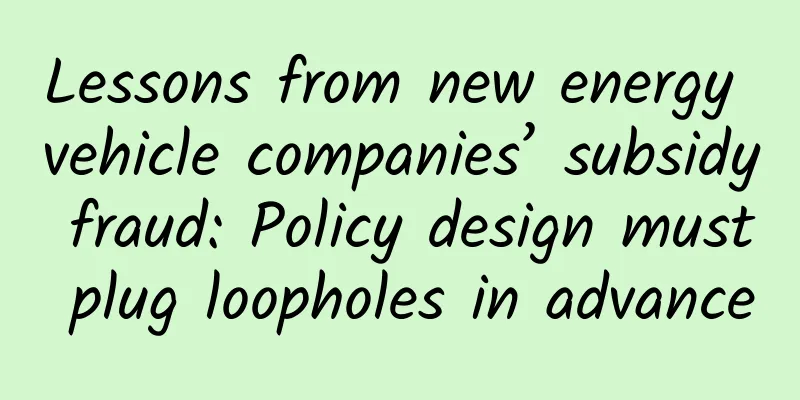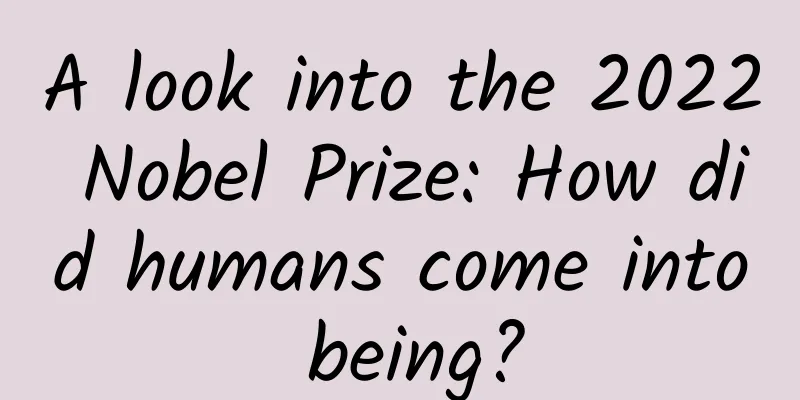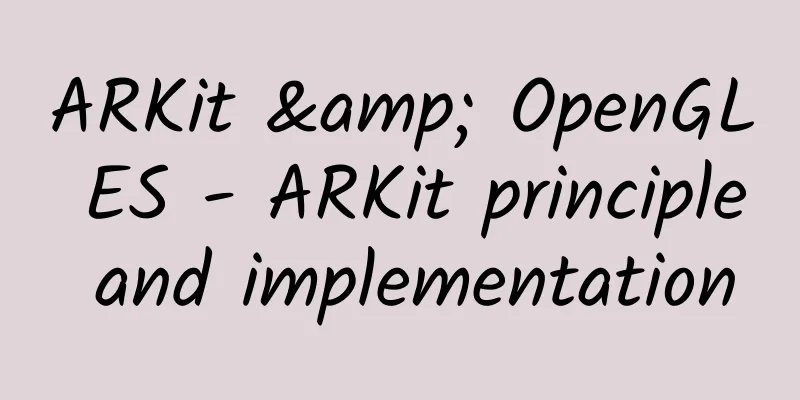Lessons from new energy vehicle companies’ subsidy fraud: Policy design must plug loopholes in advance

|
On September 8, the Ministry of Finance exposed five typical cases of new energy vehicle manufacturers defrauding or seeking subsidies, involving a total of 1.01 billion yuan in fiscal subsidies. The subsequent fiscal subsidy policy is expected to change, and the Ministry of Finance will work with relevant departments to speed up the revision and improvement of industrial support policies, timely raise the entry threshold, and take appropriate measures to reduce subsidies. Obviously, the five companies investigated are just typical examples of subsidy fraud, and not the only five companies with subsidy fraud problems. Some car companies that seem to have a "soft landing" may also be included in the ranks of subsidy fraud companies if they are taken seriously. In fact, this investigation may be fatal to the five companies involved, and it is very likely to cause a series of chain reactions. For example, it is difficult to repay bank loans that are due, and it is impossible to pay for goods to upstream companies. Once these problems really occur, the negative effects and effects of the violations will be even greater. Objectively speaking, it is not difficult to deal with the fraudulent subsidies of car companies. Even if some of the problems analyzed above occur, they have nothing to do with investigating and punishing fraudulent subsidies. Moreover, in the face of possible problems, local relevant departments will take timely action to avoid intensified conflicts. What I want to point out is why public financial policies are often deformed during implementation, and public financial funds are often embezzled during use. These issues deserve more attention and concern. In fact, similar phenomena such as new energy vehicle companies cheating on subsidies are often seen in the allocation and use of public financial funds. To put it bluntly, similar problems have existed to varying degrees since the introduction of such policies. The purpose of the state's introduction of public financial subsidy policies is to boost the development of a certain industry, to better make up for shortcomings, promote balance, and help coordination. It is to promote economic and social development and improve residents' living standards through financial subsidy policies. In particular, the industrial subsidy policy, at a time when the public financial supply capacity is not strong and the fiscal revenue and expenditure pressure is still very large, arranges special funds to support industrial development and support key industries, key industries, and key enterprises, reflecting the government's attention to emerging industries, emerging industries, and key enterprises. However, the goodwill of the central government has been distorted in the implementation of some policies, so that the goodwill of the policy has not been reflected to the greatest extent. It must be noted that developed countries also introduce some industrial support policies, including financial subsidies, etc., but the problem of fraudulent subsidies like China is relatively rare. The reason is that from policy formulation to implementation, from fund allocation to supervision, from fund use to effect evaluation, there are very complete systems and regulations, and the implementation procedures are standardized. More importantly, the introduction of a policy requires repeated research and evaluation. Looking back at ourselves, the relevant departments do have something worth thinking about in the management of public resources. For example, when an industry support policy is introduced, has a comprehensive analysis and consideration been conducted? Has possible hidden dangers and loopholes been predicted in advance? If these problems are not resolved, once loopholes or loopholes exist, fraud and subsidy fraud will be difficult to avoid. Judging from the subsidy fraud that has already occurred, it seems that a subsidy fraud profit chain has been formed between local governments and enterprises. Because the allocation of a lot of funds is arranged by local finance level by level. Therefore, local finance also has the responsibility and obligation to review and check. But the reality is that in addition to helping companies get more subsidies, some places have not fulfilled any review and control responsibilities. To a certain extent, they will also play the role of jointly defrauding subsidies, and it is possible to get a share of the pie in the process of helping companies defraud subsidies. This way of operation will inevitably lead to the phenomenon of public resources being divided up. For the relevant parties, after the policy was introduced, they did not consider the implementation effect of the policy more, but only paid attention to whether the financial funds had been allocated. Once the funds were allocated, the task was completed. As for whether the effect is good or not, it is up to the companies to release their "results". Why do more and more companies, even well-known companies, join the ranks of fraudulent subsidies? Isn't it because it is not difficult to get subsidies? For this reason, don’t think that the problem of new energy vehicle subsidy fraud will be solved by punishing the car companies. The problem of inadequate implementation of public policies and the occupation of public resources is by no means a unilateral problem of the companies, but a major problem of loopholes in the entire system. In order to fundamentally solve the problem of fraud, the following points are worth noting: First of all, it is necessary to make all-round adjustments and optimizations in policy formulation. You must know that subsidies that are like spraying floral dew are not conducive to industrial development and progress, and the problem cannot be solved by simply raising the threshold. In fact, whether it is a subsidy policy for new energy vehicles or other areas, when designing policies, possible problems must be considered in advance, and patches that can prevent problems from occurring must be designed. For example, specific standards can be formulated for the efficiency, service life, and safety performance of batteries, and only when the standards are met can subsidies be obtained. Therefore, improving and optimizing policy formulation is a prerequisite for plugging various fraudulent subsidy loopholes. Second, it is necessary to regulate the behavior of local governments and clarify the responsibilities and obligations of local finances in the process of implementing subsidy policies. Fiscal subsidy policies can only be implemented through local finances and must be reviewed and checked by local finances. This also means that local finances can form a chain of interests with subsidized enterprises, but they need to bear more responsibilities and obligations. Once problems arise, it will not only be the enterprises that will be punished, but also the local governments. Once such a pattern is formed, local governments will naturally dare not go against the wind and commit crimes with enterprises. Furthermore, supervision must be strict and investigation and punishment must be in place. This inspection mainly investigated and punished enterprises, but did not hold local finance accountable. Obviously, this is not very reasonable and the effect will be seriously affected. Because as long as the subsidy funds are issued by local finance, local finance should bear the relevant responsibilities for fraudulent subsidies and should hold the relevant responsible persons accountable, rather than just hitting the board on the enterprise. This also shows from one aspect that there are loopholes in the system in the link of accountability. In short, from this new energy vehicle subsidy fraud case, plus some similar incidents that have occurred before (such as last year when some places defrauded the national pig subsidies), we can see that subsidy fraud has become one of the most common and most critical problems of distorted public policies and encroachment on public resources. Next, how to change this situation and ensure that such incidents do not occur again requires relevant parties to attach great importance to it, start from the source, and reduce or plug loopholes in policy formulation, implementation, and supervision in advance, so that this long-standing problem can be finally solved. As a winner of Toutiao's Qingyun Plan and Baijiahao's Bai+ Plan, the 2019 Baidu Digital Author of the Year, the Baijiahao's Most Popular Author in the Technology Field, the 2019 Sogou Technology and Culture Author, and the 2021 Baijiahao Quarterly Influential Creator, he has won many awards, including the 2013 Sohu Best Industry Media Person, the 2015 China New Media Entrepreneurship Competition Beijing Third Place, the 2015 Guangmang Experience Award, the 2015 China New Media Entrepreneurship Competition Finals Third Place, and the 2018 Baidu Dynamic Annual Powerful Celebrity. |
<<: IP adaptation becomes a gimmick, and the cold winter of TV games has not yet dissipated
>>: Do you agree that AirPods is Apple’s new chess piece in its Internet of Things layout?
Recommend
Have you been fooled by wearable devices?
There have always been different opinions about t...
Crazy Douyin free traffic card live room square
Ever since the emergence of TikTok, people have b...
Can Ford's all-electric Mustang Mach-E still be called a Mustang?
At the beginning of this year, the sudden outbrea...
A microwave oven is the key to 2-nanometer chip manufacturing
A home microwave oven modified by scientists is h...
What is it like to grow up in a hurry?
"How old is the child?" "Twenty ye...
50W bloggers "100 Kinds of Life" short video creation camp, everyone can make their own 1-minute short video Baidu cloud download
500,000 bloggers "100 Kinds of Life" sh...
Spy photos of the suspected new generation Giulietta will be released before 2020
Recently, overseas media exposed a group of spy p...
Brand ≠ IP, operators need to have a deep understanding of IP and brand
Brand is not equal to IP, there is a clear differ...
Congratulations to Chinese scientists! New breakthroughs in 2023
A century of change Technological innovation is t...
5 steps + 11 key points to write a brand slogan!
90% of our knowledge of a brand comes from its sl...
Perl language entry to mastery video course
Perl language entry to mastery video course resou...
Pink pineapple! Can I eat it? Is it delicious? Can I afford it? | Nature Trumpet
Welcome to the 43rd issue of the Nature Trumpet c...
Pufferfish: We don’t produce toxins, we are just the “carriers” of toxins
When it comes to pufferfish, gourmets must have a...
Excellent young scientists used to play mahjong as a toy when they were young
In all walks of life, there are young people who ...









![[Video] Xiaomi Senior Planning Director: How to come up with marketing ideas that have the potential to achieve great results with little effort?](/upload/images/67cc193d1f7a0.webp)